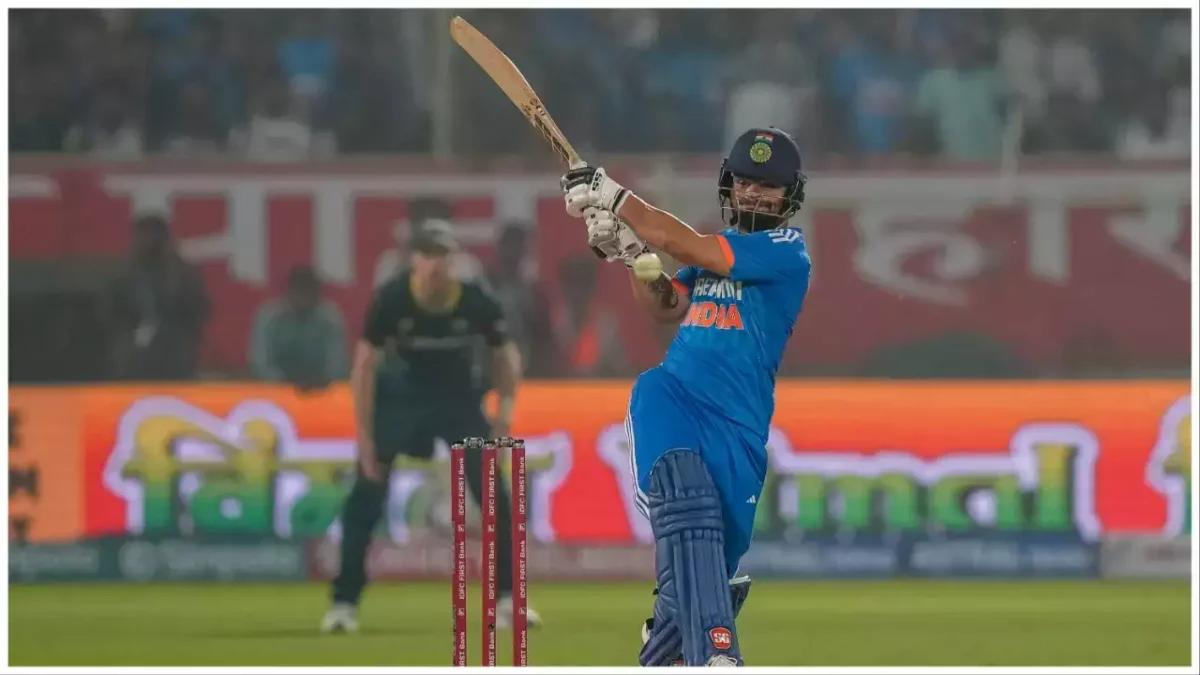While the World Cup ended last Sunday with a heartbreaking result for the Indian team, there was still excitement in the shorter format of the game as India’s first Twenty20 International match against Australia took place in a thrilling finish at Visakhapatnam on Thursday.
Following the Aussies’ impressive score of 208/3 in 20 overs, led by Josh Inglis’ incredible 110 off just 50 balls, the hosts were nearly there thanks to the brilliant half-century knocks from captain Suryakumar Yadav and Ishan Kishan. However, the departure of these two players brought the Aussies back into the game, and Nathan Ellis’s tight penultimate over, in which he conceded only 6 overs, made the match exciting right to the finish.
Rinku Singh hit a four off the first ball of the over from Sean Abbott, reducing the equation to 3 required off 5 balls. The left-hander failed to connect on the second ball as Abbott pulled his length, but still picked a single as Matthew Wade, the wicketkeeper, fumbled in his collection. The equation was still stacked in favour of India, needing 7 off the final over.
Axar Patel attempted a length delivery with two needed off of four, but he could only find a top edge. Abbott remained composed and dismissed Axar with a simple catch over his shoulder, bringing spinner Ravi Bishnoi onto the strike. Bishnoi attempted a hook shot on the third ball, but Rinku was alert, starting to run as soon as Abbott delivered the delivery. The batter regained the strike even though it meant that Bishnoi was run out at the other end.
Rinku took the penultimate delivery, a slower ball, and smashed it towards deep midwicket with Arshdeep at the non-striker’s end. Rinku reached the crease for a second run, but Arshdeep lost his footing at the bowler’s end, and India lost their third wicket in as many deliveries, but to the relief of the dugout, Rinku held onto the strike.
Rinku Singh needed one run to win the match, so he took the final over and did it in the most satisfying way possible by hitting the ball for a maximum over long on. However, the ball was declared over after a few seconds when the third umpire ruled that Abbott had overstepped, so the six runs were not counted.
As India needed one run to win, the no-ball ensured that the match was over before the delivery even reached Rinku Singh. As a result, the left-hander’s beautiful six was not included in India’s total or on his personal scoresheet because it came after India had already won.
Interestingly, Abbott’s no-ball would have at most tied the scores and kept the match alive if Rinku’s six had counted had India needed more than a run to win. “If a boundary is scored before the batters have completed sufficient runs to win the match, the whole of the boundary allowance shall be credited to the side’s total and, in the case of a hit by the bat, to the striker’s score.”
See More: India Takes Series Lead with 2-Wicket Victory over Australia.














